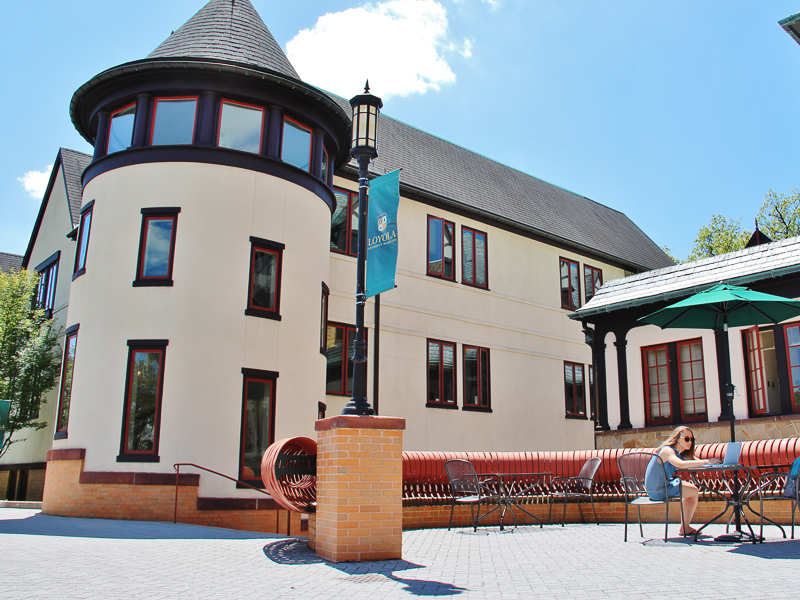Campus and Community Resources
Substances might numb the struggle, but they don’t heal the wound. Know that help is available. Alcohol and drugs may seem like a way to cope with stress, trauma, loneliness, or pressure—especially in high-stress environments like college. While they might temporarily distract or dull painful feelings, the underlying challenges remain. Over time, reliance on substances can make those struggles more intense or more difficult to overcome. Healing and relief are possible. There are healthier, more sustainable ways to manage pain, find community, and build resilience.

Campus Resources
- Are you concerned about yourself or a friend/roommate’s well-being due to substance misuse? Seek consultation and support through this form and sharing your concerns. Learn more about Loyola’s Care Team.
- Want to have a conversation with a counselor about concerns for yourself or a loved one? Schedule an appointment today. Learn more about Loyola’s Counseling Center services.
- Are you unsure if you are struggling with substance use and searching for community? Check out Togetherall, a free, anonymous, online peer support community with self-assessments for alcohol and other substances.
The Loyola Counseling Center provides assessment and short-term individual counseling. Comprehensive assessment and treatment recommendations are necessary to ensure that an individual engages in the most helpful, ethical, and supportive care for their needs. This may include connecting students with additional campus or local resources.
Safe Use & Overdose Prevention
- Pill Identifier & Test Strips
- Naloxone. Learn about this life-saving medication for a potential opioid overdose. Anyone can learn how to use naloxone with minimal training. Learn more here.
- The Good Samaritan Law. Maryland’s Good Samaritan Law (or “Good Sam”) protects those who assist with an emergency alcohol- or drug-related overdose. The Good Samaritan Law also protects the person (or people) experiencing the emergency medical overdose.
- Check out Loyola’s Policy on helping a peer who is experiencing an alcohol- or drug-related emergency.
Local Organizations
- Alcoholics Anonymous: free support groups for alcohol abuse based on the 12 Step Recovery Model
- AL-ANON: free support groups for family/friends of an individual struggling with substance abuse based on the 12 Step Recovery Model
- Narcotics Anonymous: free support groups for drug abuse based on the 12 Step Recovery Model
- SMART Recovery: free support groups that support recovery from addiction
- Maryland Addiction Recovery Center: assessment and treatment for substance abuse, including intensive outpatient and inpatient treatment
- Kolmac: outpatient recovery treatment
- Chase Brexton Health Care: outpatient recovery treatment and support
Additional Resources
- Adult Children of Alcoholics®/ Dysfunctional Families: support for adults raised by a parent struggling with or who has struggled with substance abuse.
- Nomo – Sobriety Clock: Free app for iPhone and Android. The app offers everything from an encouragement wall, to accountability partner searching, to mini-exercises to help you refocus on sobriety
- WEconnect: Free app for iPhone and Android. WEconnect helps users schedule routines to stay on track for recovery. The app provides reminders, rewards for completion of recovery activities, and GPS verification for routine locations to increase accountability
- Harm Reduction resources in Maryland
- 988: free emergency support for those struggling with substance use; resources for supporting loved ones
Back to Substance Use and Misuse
Contact Us
Humanities, Room 150One flight up the turret entrance
Phone: 410-617-CARE (2273)
Call to schedule an appointment
Monday - Friday, 8:30 a.m. - 5 p.m.